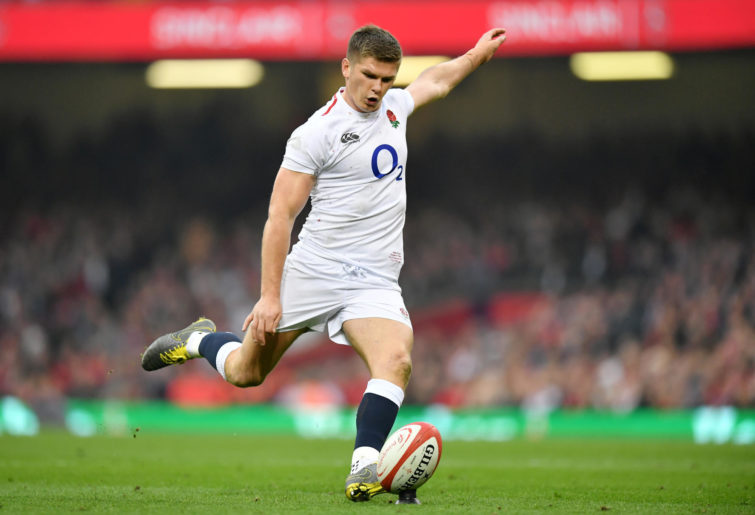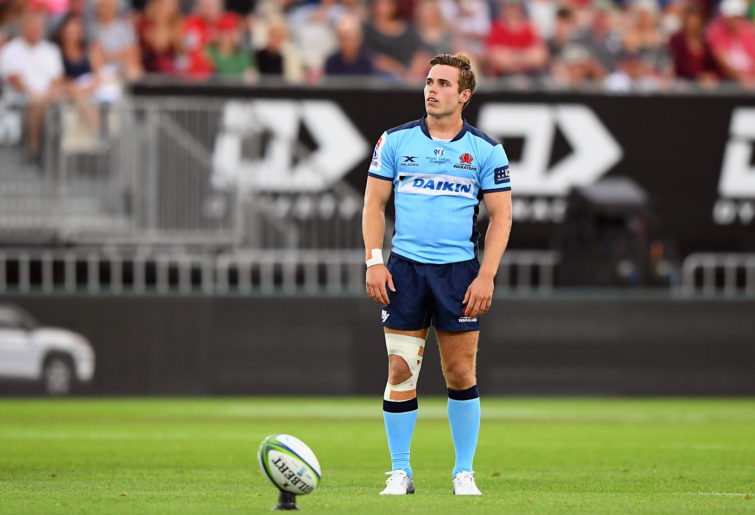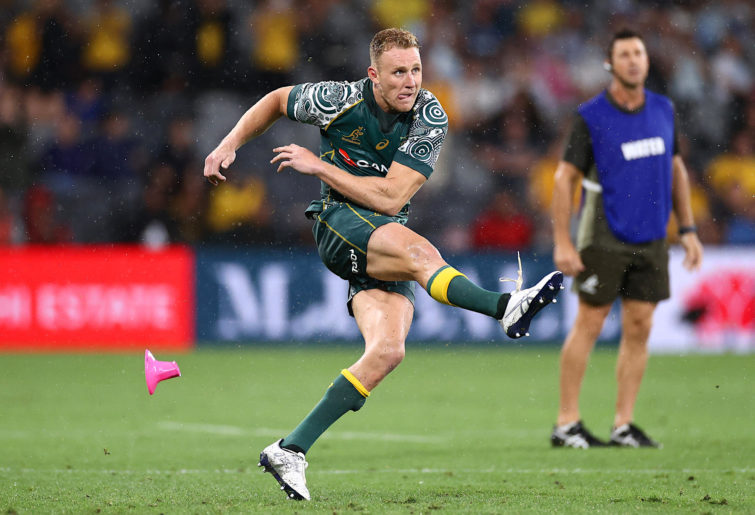2021 has been drawn up as the season which Australian rugby draws a line in the sand. The first 25 years of professionalism was then, this is now.
New direction, new competitions, new trans-Tasman focus, new broadcasters. New future.
It is a big season for the game, for the five Australian teams, and it’s a big season for fans both of the rusted variety and especially those who have lost contact with the game over time for whatever reason.
But this is not about the game kicking metaphorical goals off the field in 2021.
Rather, we’re talking about the literal goals on the field.
You don’t have to look very far to find something in the game that needs fixing in Australian rugby, but goal-kicking has been an issue for a long time.
While the Owen Farrells and the Johnny Sextons and the Dan Carters and whichever kicking machine is wearing the Springbok no.10 jersey at the time have regularly existed in the truly elite measure of 80 per cent or better, Australian kickers have only ever been temporary visitors.

Owen Farrell. (Photo by Dan Mullan/Getty Images)
Bernard Foley was, for a time after the 2015 World Cup, referred to Australia’s “iceman”, but the reality is that he was never that consistently good. One strong year from the kicking tee could easily be followed by a disappointing year.
Equally, a disappointing Super Rugby season for Foley could just as easily be followed by an excellent Test season within the same year.
He certainly wasn’t alone. For a long time, it has felt like Australian kickers were happy to land three in every four, while at the other end opposition kickers knocked over eight in ten.
But there were signs this was changing in 2020, and maybe even changing for the good.
If we cast back to first seven rounds of Super Rugby before the global COVID-19 pandemic hit, Australian kickers trailed the competition leaders.
He didn’t start every game on return to the Bulls, but Morne Steyn was still kicking at 80 per cent. Aaron Cruden slotted back in with the Chiefs and hit them at 82. Otere Black and Jordie Barrett converted 17 from 20 attempts (85%) for the Blues and Hurricanes respectively.
Western Force fans will take heart from Argentinean flyhalf Dominic Miotti kicking a competition-leading 90 per cent (18 from 20) of the regular kickers.
Of the Australians, though, you need to scroll further down the list.
Brumbies scrumhalf Ryan Lonergan did kick eight from eight across three games, but he only started one of them. Reece Hodge kicked one from one in Round 1 for the Rebels and didn’t have another attempt over the next six rounds.
After that, Bryce Hegarty kicked 14 from 18 (78%) for the Reds, Matt To’omua kicked 16 from 22 (73%) for the Rebels, and Will Harrison kicked 13 from 18 (72%) for the Waratahs on debut.

Will Harrison. (Kai Schwoerer/Getty Images)
Noah Lolesio managed only 14 from 23 (61%) for the Brumbies in their first six games of 2020, though it is worth considering where the Brumbies score most of their tries. He also made his one and only penalty attempt.
It all represented a typically Australian return, and was typically off the pace.
Once Super Rugby AU began in July however, Harrison, To’omua, and James O’Connor for the Reds all broke through the 80per cent barrier: Harrison 37/40 (93%), To’omua 37/43 (86%), and O’Connor 35/44 (80%).
Most of O’Connor’s kicks were conversions, but both Harrison and To’omua were roughly 50-50 in their split of conversions and penalties.
Over in the west, Ian Prior and Jono Lance kicked at a combined 67 per cent for the Force, while the Brumbies had four kickers combine for a 62 per cent success rate, again noting the number of tries scored out wide and that they attempted only four penalties for the tournament.
Hodge landed two of three penalties, but carried on in the international season, particularly once he found himself starting in the Wallabies no.10 jersey.

Reece Hodge. (Photo by Cameron Spencer/Getty Images)
Curiously, we noted during and immediately after the Tri-Nations was completed some criticism of Hodge’s kicking during the series – quite likely a conclusion drawn after his three missed penalty attempts to win games. Even now, you can still find “Hodge off target again in Wallabies draw” headlines from the time to influence perceptions.
But he did land 12 of 16 penalty attempts for the tournament, and 14 from 19 kicks overall. Seventy-four per cent overall marks a jump up on his Super Rugby AU success rate, and proof that he can be far more than a long-range specialist when given the opportunity to be the first-choice kicker. The more he kicks, the better his success rate.
The Reds will start 2021 as one of the favoured teams, even after the trial loss to the Waratahs on Friday night, but the Waratahs and Rebels will both find themselves in competitive positions in games if these kicking success rates can be maintained.
The Force will be boosted by the inclusion of Miotti and will remain well-served by Prior and Lance whenever they are on the field. If the Brumbies youngsters start landing more sideline conversions, they will find themselves as frontrunners again in 2021.
It is true that goal-kicking is unlikely to make the highlights reel, but it is a crucial skill that the best teams do well. It’s equally true that nothing builds attendances and viewing numbers like winning rugby. Good kickers win more games than they lose.
2021 does loom as an important year for Australian rugby. But it is just as important that the Aussie teams start kicking as many goals on the field as they look to kick off it.
Data sources: Goal-kicking stats sourced from a mix of matchday scorecards and listed stats pages, from sites including the official SANZAAR Super Rugby page, RUGBY.com.au, and Fox Sports.































































































